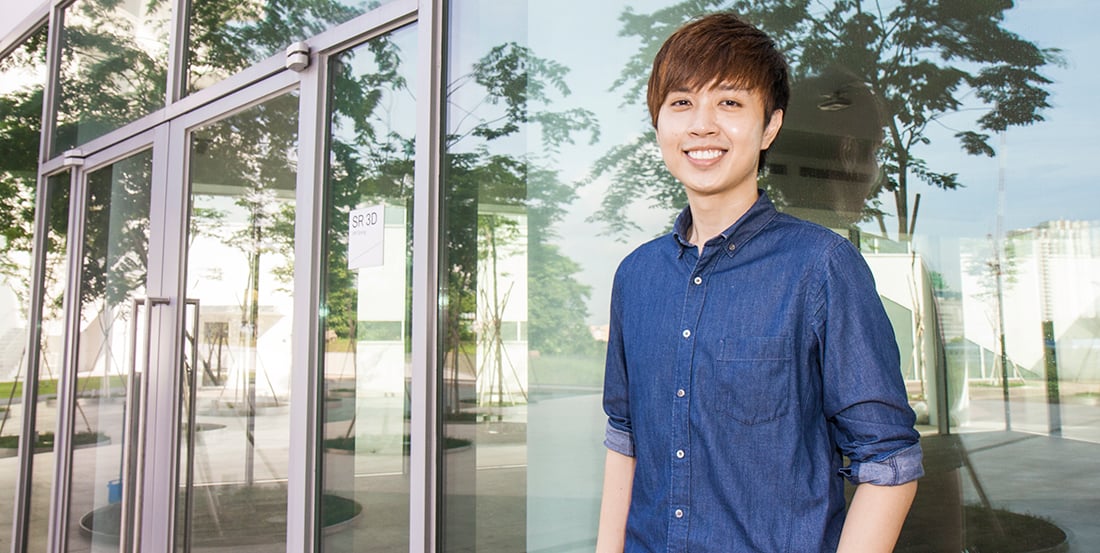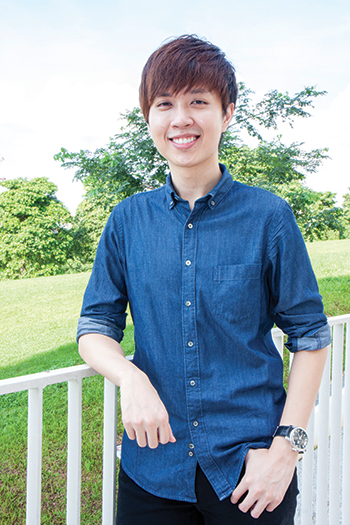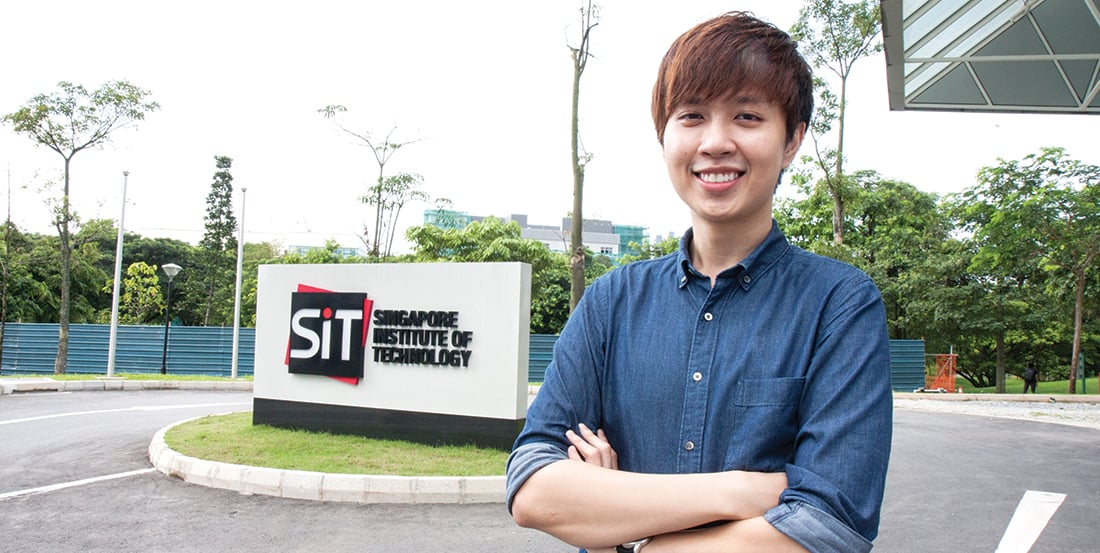I n partnership with renowned global universities, Singapore Institute of Technology (SIT) offers degree programmes in Engineering, Chemical Engineering and Food Technology, Infocomm Technology, Health and Social Sciences, and Design and Specialised Businesses. Its applied pathway model equips students with practical skills in addition to theoretical knowledge, ensuring that graduates are primed to take on the complex challenges at the workplace.
Apart from degree programmes offered in partnership with renowned Overseas University (OU) partners, SIT also confers its own degree programmes after being gazetted as Singapore’s new autonomous university in March 2014. One of these programmes is the Hospitality Business degree programme, the first and only hospitality programme offered in Singapore. This three-year degree programme aims to nurture future hospitality leaders who desire to make positive and tangible contributions to Singapore’s dynamic hospitality industry.
One student who has benefited from the Hospitality Business programme is Jenson Seah. He tells us about why he chose to join SIT, the industrial attachment he is looking forward to, as well as how his degree programme is a platform from which he can pursue an exciting new career.
Why did you choose to pursue your degree at SIT?
Jenson Seah: I chose SIT because it is the only local autonomous university that offers a three-year full-fledged Hospitality Business programme. As a mature student, time is of the essence. I wanted a degree which would equip me with strong operational skills anchored in solid theoretical knowledge.
SIT has distinguished itself as a university that offers a unique applied learning pedagogy integrating work and study. Its curriculum thus arms SIT students with practical knowledge and skills to face the major challenges in the industry. At the same time, the programme also gives students the ability to innovate and be catalysts for transformation.
 Jenson Seah Guo Long
Jenson Seah Guo LongStudying:
Bachelor of Hospitality Business with Honours
Tell us about your upcoming Industrial Attachment (IA).
Jenson: My IA will commence during the third trimester of my first year and will last for three months. We are encouraged to apply to various organisations, including SIT’s existing industry partners, based on our individual preferences. I hope to take up a Sales & Marketing role or any other business-relevant one in the hospitality industry.
Sales & Marketing is one of my main areas of interest as I plan to specialise in this role in the hospitality industry upon graduation. Taking up a relevant Sales & Marketing role during IA will definitely go a long way in bolstering my knowledge and skills.

How do the modules and projects prepare you for the workforce?
Jenson: A highlight of SIT is its Integrated Work Study Programme (IWSP). This will take place during my last trimester in Year Two. During IWSP, I will have the opportunity to work as a hospitality employee for eight months and apply my classroom knowledge at the workplace.
When I was in polytechnic, I was attached to a regional marketing and events agency during the final semester of my third year. Although I struggled during my first few weeks, I eventually found my footing and became a good planner who is able to manage and run events well. That boosted my self-confidence as I learned how to connect authentic work experience with classroom knowledge.
So while classroom knowledge is important, I feel that the key to unlocking one’s capabilities really lies in the workplace. The relatively long duration of the IWSP will be able to facilitate this – students will be able to dive in, dig deep and focus on issues at work. At the same time, IWSP will also allow my host organisation to evaluate my work performance and see if I am a good fit for them.
What are some challenges you have faced at SIT?
Jenson: The learning environment at SIT is very much project-based which requires me to work with different people on various projects. To date, I have taken up leadership roles in some of these projects. These roles call for a significantly heavier workload compared to what I had done in polytechnic. I also have had to adapt to a new environment, adjust my work expectations as well as respond to different group dynamics. But I relish the opportunity to overcome such challenges which have helped me to become more resilient.
How do you hope to contribute to Singapore’s hospitality scene?
Jenson: I see myself as a global leader who can be a catalyst for transformation. I also want to give back to the community after I graduate.
I cannot wait to take on more challenging job roles as I move up the ranks in the hospitality industry. This is a very exciting time for Singapore’s burgeoning hospitality scene. Furthermore, I also hope to impart my knowledge to the next generation.
What advice would you have for those who wish to pursue a degree at SIT?
Jenson: It is important to always stay on your toes. Also, be serious when it comes to learning because the pace at SIT is fast, which mirrors the work environment out there. Last but not least, be diligent and don’t ever lose your self-motivation.

